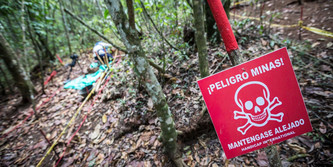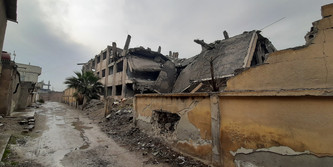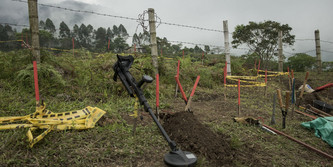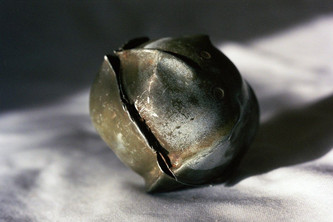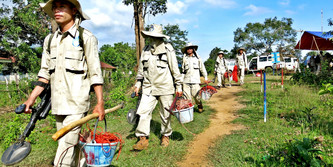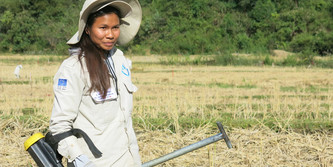UVM trustees to vote on weapons divestment (US)
The University of Vermont is poised to authorize a withdrawal of endowment investments from companies that make cluster bombs or weapons containing depleted uranium.
The trustees' investment subcommittee unanimously endorsed a divestment resolution Friday morning to await action by the full board at its quarterly meeting next week. Approval is expected, which would begin a lengthy process of evaluating UVM's holdings to determine which companies fall under the new ban. In the case of previous divestment initiatives - most recently with respect to companies doing business in Sudan - that process can take as long as a year before divestment takes effect.
Proponents at UVM believe the university might be the first in the country to adopt such a resolution. According to the National Association of College and University Business Officers, however, many universities have adopted "socially responsible" investment criteria of various kinds, including strictures on military contractors.
"It's so exciting," said Tyler Platt, a UVM senior and a member of Students Against War, which launched a divestment campaign against "war profiteers" about two years ago. "It's been a really slow process, with a lot of steps along the way."
The students initially took their divestment demand to trustees, who referred it to a Socially Responsible Investment Work Group comprising students, faculty and staff, along with trustees. That group deliberated over several months and ultimately narrowed the focus to companies that produce the two varieties of weapons that have been used, controversially, in the Iraq War.
If the board approves the resolution, the resulting divestment is expected to have a minimal effect on UVM's endowment portfolio, which was valued at $236,059,090 at the end of February. Some of the holdings are in pooled funds, and any divestment would likely be from companies subject to UVM's sole authority. In any case, the divestment would account for a small fraction of the endowment's overall value, and one member of the sub-committee, Susan Hudson-Wilson, said she thought the political significance of the resolution might outweigh its financial impact.
The Work Group's research cited reports by the International Coalition to ban Uranium Weapons and the Ethical Investment Research Service and Human Rights Watch.
According to those sources, three U.S. companies produce depleted uranium weapons: Aerojet and Alliant TechSystems and General Dynamics. Those three companies and five others allegedly produce or export cluster munitions: L-3 Communications, Lockheed Martin, Northrup Grumman, Raytheon and Textron Defense Systems.
Rob Doolittle, a spokesman for General Dynamics, said in response to a query Friday:
"We are not familiar with the Oslo Treaty's definition of a "cluster munition," so I cannot say with certainty whether any of our products fall within those characteristics.
"I can say with certainty that we are not currently involved in the manufacture of weapons containing depleted uranium."
UVM trustees' investment subcommittee or its designee would be charged with researching which companies in the portfolio would come under the new ban.
Platt said Students Against War are working on another divestment proposal that applies, more broadly, to "war profiteers." The group circulated a petition calling for such a divestment and collected about 1,300 signatures, he said.


